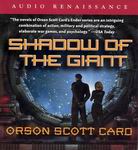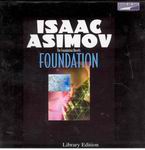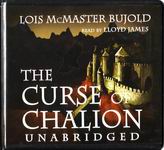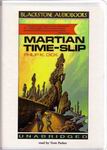
 Shadow of the Giant
Shadow of the Giant
By Orson Scott Card; Read by David Birney, Scott Brick and cast
10 CD’s – 12 hours [UNABRIDGED]
Publisher: Audio Renaissance
Published: 2005
ISBN: 1593974965
Themes: / Science Fiction / World Politics / War / Leadership /
I’ve been a fan of Orson Scott Card’s Ender series for a long time. I’ve read them all in print, some more than once. When Card started to be published in unabridged audio (a medium that Card really likes) I listened to them all, too. And I loved them again.
As I did this one. Shadow of the Giant is the fourth book in the Shadow series, which started with Ender’s Shadow, then continued with Shadow of the Hegemon and Shadow Puppets. The novels follow Ender’s jeesh – the fellow students who helped him defeat the Buggers in Ender’s Game. Ender himself is off-planet, on his way to help colonize a planet. The Battle School students that were left behind are desired by the world’s governments, since they are jockeying for position after the defeat of the common enemy.
There’s a ton of things going on before this novel even starts. It works stand-alone, though, because Card takes time to let the reader know what needs to be known before moving on.
The book basically has two fronts. First, the real-life game of Risk© that is going on between nations of the world – nations ruled by past Battle School students – and Peter Wiggin’s efforts to unify everyone under a single government.
Second is the story of Bean, Petra, and their children. In a previous book, Bean and Petra have several embryos created with hopes of being able to have a normal child. Several of them were stolen and implanted in other women with hopes of creating another brilliant person that could be under the control of others. Bean and Petra search for these women while having the child they had planned on.
The audiobook is just excellent. David Birney, Scott Brick, and others perform the book. It flows so well, and there are moments to listen to again and again, like the deeply affecting conversation between Ender and his brother Peter in the last part of the book. For a person who has followed the story from the beginning, those moments are gold – filled with both the weight of the moment and the weight of all that came before. The audio performances enhance those moments, adding another layer of depth as the actors interpret the text. This book was in the right hands.
Card says that we are not quite at the end here. According to notes on his website, the writing of this book created another story to be told. So we’ve all got that to look forward to.
Posted by Scott D. Danielson




